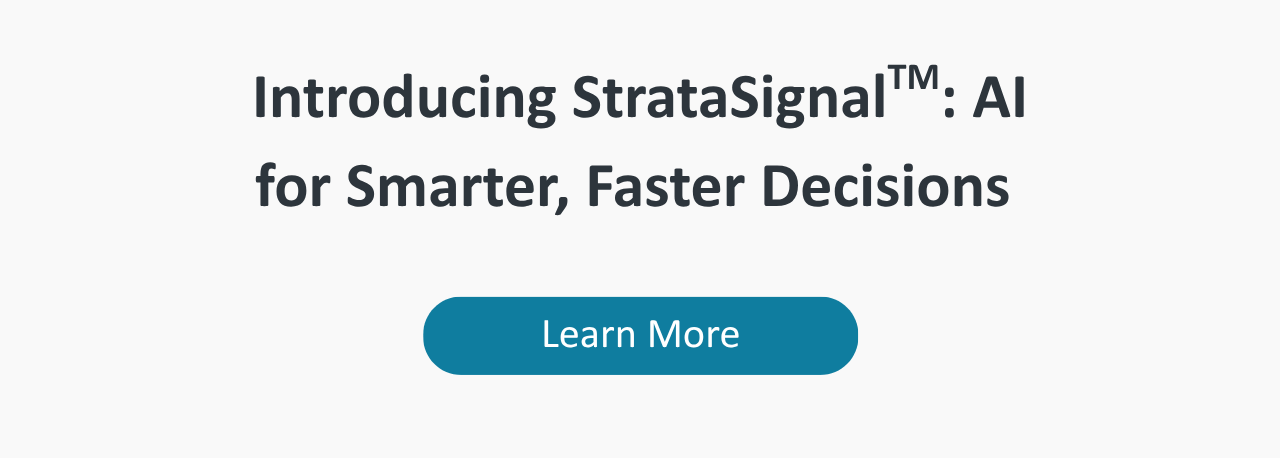Hospitals and health systems have more data than they know what to do with — and that’s a challenge.
Large amounts of financial, clinical, and operational data are generated each day from EHRs, billing systems, claims, and many other software solutions. But without an enterprise decision support system that aggregates data and provides ready analysis, finance staff struggle with voluminous spreadsheets that require manual input and calculations using data across disparate systems.
Despite access to data from across their organizations, 82% of respondents surveyed for Syntellis’ 2022 Healthcare CFO Outlook report said their organizations could be doing more to leverage financial and operational data.
Technology can provide solutions to data-gathering and aggregation challenges to help hospitals and health systems harness their data to drive better decision-making amid turbulent market conditions.
Greater Visibility Needed Across the Enterprise
Even pre-pandemic, healthcare organizations faced a shift in how patients receive and pay for care. Physician practices and emergency departments (EDs) found themselves competing with greater numbers of urgent care centers — often associated with prominent pharmacy chains. High-deductible health plans shift the burden of care reimbursement onto patients, so providers increasingly need to chase patients for payment.
Margins were razor-thin pre-pandemic and declined during 2020. Nonprofit hospitals reported a median operating margin of 2.4% in FY 2019, which fell to 0.5% in FY 2020. Some hospitals reported that federal coronavirus relief funds accounted for more than 100% of operating cash flow.
Organizations can use data to determine strengths, weaknesses, and pivot opportunities — if that data is readily available and in a usable format. Forty-four percent of respondents to the Syntellis survey say their organizations have visibility across the enterprise, while 33% can capture data from hospitals and outpatient facilities. However, one-third express frustration with the data submission process for financial performance benchmarks, and 28% do not use financial performance benchmarks.
As one respondent said, “We still struggle with too much data from too many different systems that leads to questioning the validity and accuracy of information.”
A robust decision support software system brings transparency and visibility to clinical and financial decisions, providing a comprehensive view of performance across cost, quality, and service line measures. Sound decisions start with reliable data.
Modern Tools Can Automate Processes
Decision support capabilities among healthcare organizations vary widely, which can cause similar organizations in similar circumstances to make dramatically different choices. A powerful, integrated decision support solution helps leaders make effective, streamlined, and data-based decisions that align with organizational goals, yet only 18% of healthcare organizations manage performance improvement initiatives with a modern solution.
About a third of healthcare organizations (32%) rely on a variety of disparate tools for decision support. Among those with decision support solutions, 50% still rely primarily on spreadsheets because their solutions offer only rudimentary means to track and manage performance.
With robust decision support solutions, finance leaders can more easily identify and reduce variations in care, enhance care coordination, and track and improve workforce productivity.
A modern enterprise decision support system automates data collection and collation, giving finance staff more time to analyze reports and plan improvement initiatives rather than gathering information. Intuitive dashboards and reports help decision-makers better view progress toward goals or set new initiatives.
Looking forward, organizations are focused on lowering costs and improving efficiencies. The top priorities cited for 2022 include managing strategic and performance improvement initiatives (52%), reducing costs (48%), and measuring and managing productivity (39%).
The sophistication of data analysis is also growing, with 46% of organizations planning to improve decision-making using predictive analytics in the next 12-18 months. One-quarter of respondents are exploring artificial intelligence and machine learning, while 34% have no plans to increase the use of advanced technologies.
Confident in the Data, But Not its Benefit
Hospital and health system finance leaders expressed confidence in their cost accounting systems, with 55% saying they were confident or very confident in system accuracy. However, respondents were less confident in how effectively their cost accounting data actually drives cost improvement. Nearly three in 10 indicated the data was not useful, 36% were neutral, and 37% said the data was very useful.
More than a quarter of respondents do not use data to drive cost improvement initiatives — despite feeling the data is accurate. This finding suggests organizations should address other barriers hampering this critical activity, such as the inability of decision support solutions to pinpoint areas of improvement.
As costs continue to increase at an unsustainable rate, healthcare finance leaders must find ways to integrate routine cost reduction and management processes into everyday operations. A reliable cost accounting solution is essential to providing the transparency and market insights needed to drive effective, ongoing cost management.
Conclusion
The healthcare industry will remain volatile as the pandemic continues, competition for healthcare dollars heats up from existing and emerging providers, and market pressures strain already thin margins. Too many organizations still rely on disparate systems and spreadsheets to guide critical organizational decisions. Healthcare leaders need robust solutions to facilitate timely and accurate data-driven decision-making.
An enterprise decision support system brings a single source of truth and a central repository for aggregating data, compiling reports, and making reasoned, data-driven decisions to reduce costs, maximize profits, and position organizations for growth.
Axiom™ Enterprise Decision Support empowers healthcare organizations to drive performance and decision-making with a single, trusted source of financial and clinical performance measures. Get a demo to learn more.
You also might be interested in...



